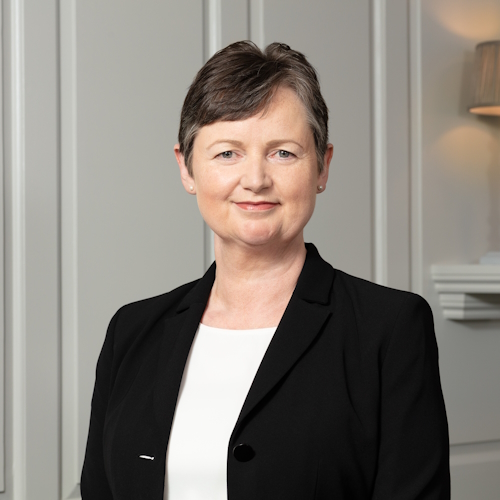
CLAIRE KINGHAM
Where one member of a cohabiting couple dies the surviving member has no rights in Jersey law to the deceased member’s estate, unless they have been provided for by will. This is in stark contrast to the position in England, where a surviving cohabitee may make a claim on their deceased partner’s estate, where they died without making a will, or failed to provide adequately for them in their will.
Ownership of the family home (Immovable Estate)
The matrimonial or civil partnership home (“family home”) is often one of the most important assets in a family. Where one spouse or civil partner owns the family home and dies without making a will, the surviving spouse or civil partner will inherit the family home where there are no children. Where there are children, the surviving spouse or civil partner will be entitled to the life enjoyment of the family home and an equal share in the reversionary interest with each of the children.
A cohabitee in a similar situation will have no entitlement to the family home. The deceased cohabitee’s children will inherit the family home equally between them. If there are no children, the deceased cohabitee’s siblings will inherit. Indeed it may come as a surprise to many that prior to a change in Jersey law as recent as 2011, children born outside wedlock had no entitlement to their deceased father’s estate, unless he had provided for them by will.
Cohabitees would be well advised to ensure that the family home is owned jointly for the survivor of them. Alternatively, the cohabitee who owns the family home may wish to make a will gifting at the very least the life enjoyment of it to their cohabitee in the event of their death.
Stamp Duty on the family home
The family home is exempt from stamp duty where it is left to a surviving spouse or civil partner by will. Where one member of a cohabiting couple leaves the family home to the surviving cohabitee by will, stamp duty is payable on registration of the will in the Public Registry. By way of example, stamp duty on a property with a value of £850,000 is currently £19,250.
Where the matrimonial home is owned jointly for the survivor there is no stamp duty payable on the death of the first one of the joint owners.
Ownership in Common/Jointly for the Survivor
In blended families it is not uncommon for cohabiting couples to hold the family home as owners in common, rather than jointly for the survivor of them. Cohabiting couples may choose this form of ownership because they have each made differing financial contributions towards the cost of the family home and they wish to ensure that when they die, their children inherit their share of it rather than their cohabitee. In this scenario careful succession planning is necessary to ensure that the surviving cohabitee is adequately provided for in terms of a place to live. One option is to grant the surviving member of the cohabiting couple a life interest over the deceased member’s share of the family home. This may present challenges where there is a significant age difference between the cohabiting couple and there are minor children from a previous relationship to be provided for.
Movable Assets (e.g. bank accounts, investments, family home contents)
Where a spouse or civil partner dies without making a will, the surviving spouse or civil partner will be entitled to inherit their entire movable estate where there are no children. Where there are children, the surviving spouse or civil partner will be entitled to the first £30,000 and half of the remainder. The children will inherit the other half.
Contrast that with the surviving cohabitee who will have no entitlement to the deceased cohabitee’s estate, unless they have been provided for by will.
Even where a cohabitee has been provided for by will, the children of the deceased cohabitee may claim two thirds of their parent’s movable estate by way of légitime, which would reduce the surviving cohabitee’s share to one third of the estate at the very most.
Holding assets jointly for the survivor, where possible nominating the cohabitee as beneficiary of assets by way of an expression of wishes form, putting in place adequate life assurance for the benefit of a cohabitee and making a will, are some of the options available to avoid unwanted consequences on death.
The starting point for any cohabiting couple is to make a list of your assets, understand how you own them and consider who you wish to provide for on your death. Taking succession planning legal advice will ensure in so far as is possible that upon your death your assets will pass in the way that you intended.
Claire would be happy to talk you through your Estate Planning plans.
Please call 875 875 to make an appointment.


